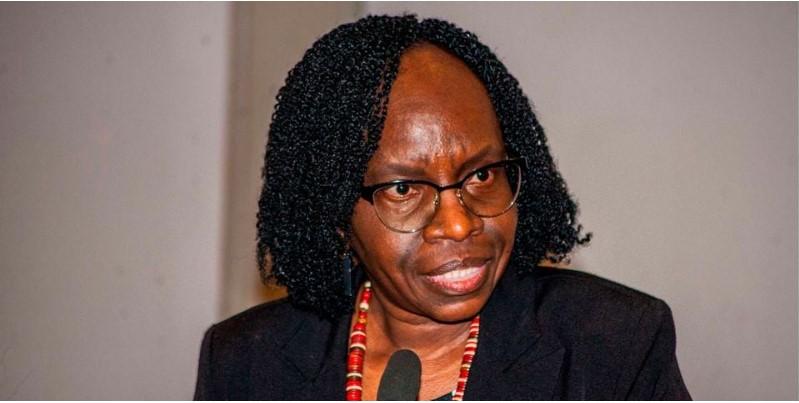Auditor General Exposes 5 Flaws in Govt Deal With Australian Company
The legitimacy of an agreement between the Ministry of Energy and an undisclosed Australian company has been questioned by the Office of the Auditor General (OAG), led by Nancy Gathungu.
In the 2021/2022 Financial Year report, the OAG stated that the agreement was initiated in November 2020 to foster sustainable green industries nationwide.
In the course of its inquiry, the auditor discovered irregularities in the procurement procedure, such as a deficiency of documentation or statements supporting the acquisition and eventual procurement of the private company.
Gathungu expressed worry about the absence of thorough documentation outlining the essential criteria for identifying the necessity of developing green industries.
She mentioned that the understanding between the two parties was additionally put into action by an undisclosed task force, whose appointment was not officially announced, and the criteria for selecting task force members were not formally documented.
“Due diligence on the company was conducted by members of a task force appointed to oversee the implementation of the Agreement from April 29, 2022, to 16 May 2022, eighteen (18) months after the Agreement had been signed,” read the report in part.
“This was contrary to the provisions of the Public Procurement and Asset Disposal Act, 2015 which requires that due diligence be conducted before award of tender by the Evaluation Committee.”
While the agreement stipulates that every party needs to designate a minimum of three representatives to the task force within seven days of the agreement’s date, the government, as per Gathungu, selected its representatives on November 17, 2020, which is 13 days after the agreement was made.
ALSO READ:
- “Two Groups, One Agenda”: Gachagua Accuses Raila of Secret Political Deals
- Exclusive: Ida Odinga’s 75th Birthday Party in Karen (Photos)
- FKF President Discloses Exact Amount Paid to Harambee Stars Players
- Gachagua’s Ally Senator John Methu Admits Ruto Might Win 2027 Elections
- Maraga Explains Why He Hasn’t Campaigned in Kisii Despite 2027 Bid
A significant problem was the task force’s inability to create the Terms of Reference (ToRs) even though two years had passed since the Agreement was signed and the Framework Agreement was put into action. The formulation of ToRs, pending approval, was explicitly outlined as one of the specific goals in the appointment letters.
“In the circumstances, management was in breach of the agreement,” added the report.
The Energy Ministry, currently led by CS Davis Chirchir following Monica Juma’s tenure, received additional scrutiny from the auditor. This was due to the ministry making payments to lawyers, even though the legal issues had already been resolved by the Attorney General’s office, as required by relevant laws.
“During the year under review, the Ministry had budgeted to spend an amount of Ksh50,000,000 on legal fees which was later revised to Ksh25,000,000 through a supplementary budget. However, although no legal services were procured during the year, an expenditure of Ksh12,847,512 was incurred under the budget item while commitments amounting to Ksh4,080,205 were made in the vote book and remained outstanding as of June 30, 2022,” added the report.
“Further, records held at the legal department indicated that all the Ministry’s legal matters were being handled by the Office of the Attorney General.”
The Ministry faced allegations of not returning unutilized funds amounting to Ksh32 million to the National Exchequer.
Auditor General Exposes 5 Flaws in Govt Deal With Australian Company
